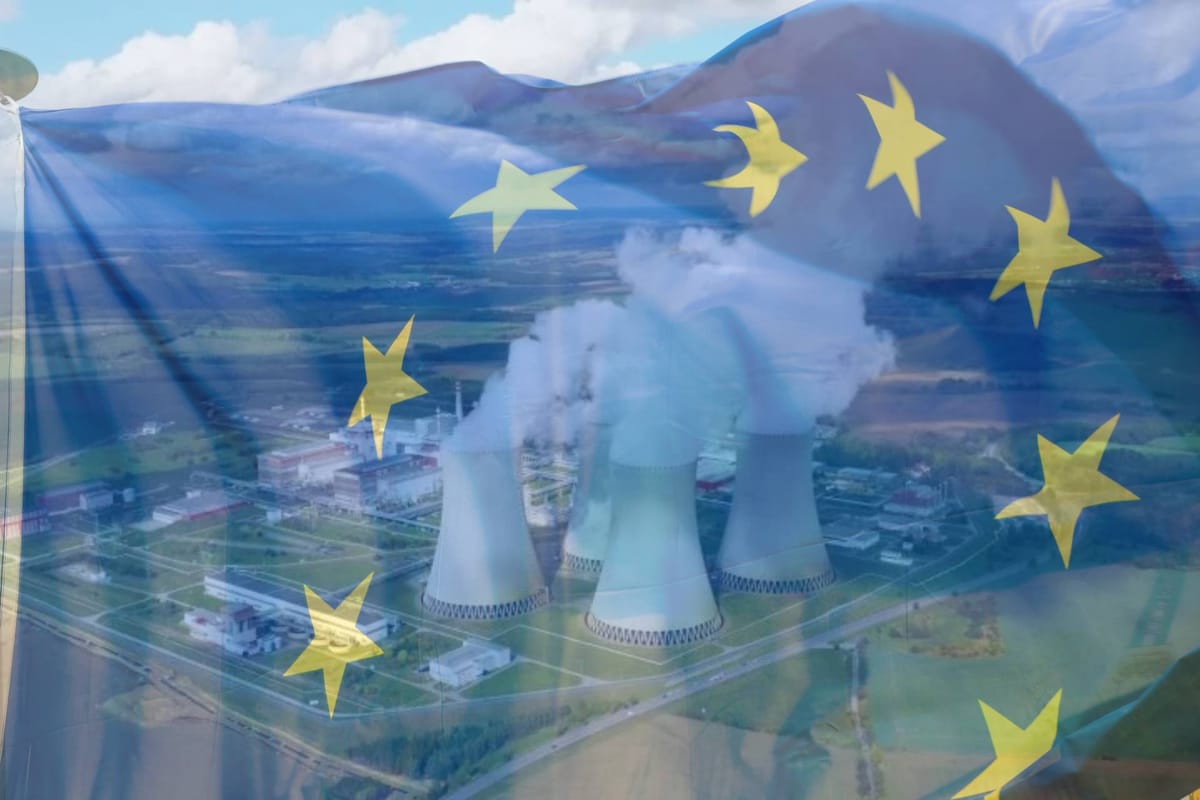What to aim for with the next European Commission?

From 6 to 9 June there'll be elections for the next European Parliament. Resulting from this there'll also be a new European Commission that'll be in charge of EU strategy for the next five years. What should we aim for with this new EC if we want to help nuclear energy?
The next EP is set to become a lot more rightwing, and in anticipation to this Ursula von der Leyen, who wants to run for another term as chair for the European Commission, is ditching policies left and right to appease to this (for now) unmaterialised rightwing majority. One of the crown jewels of the current EC under threat is the European Green Deal, which might get axed in the upcoming EC.
This piece isn't about the merits or threats of a rightwing majority, but suffice to say I see some problems on that front. Problems which require preparation by the organised workers movement across the continent to defend against. Indeed, it would be a very good time for the left to proactively strategise what to do for the upcoming five years.
For now I want to focus however on how we could use the opportunity to enhance the position of nuclear. I expect that the new EC will find itself facing a lot of resentment against solar and wind energy, yet at the same time be bound by international obligations to lower emissions. This opens a political space for nuclear to further its revival.
How would this look? Here's my two cents:
- Move away from the Renewable Energy Directive and towards a Clean Energy Directive - the current version of the RED mandates that the EU should be on at least 42.5% renewable energy by 2030. The codification of renewable energy should be removed, as it is geared against nuclear energy by design. Instead, we should aim for clean or sustainable energy, which incidentally means that we should abandon biomass.
- Fixing financing of large clean energy projects - This should be obvious for nuclear, where financing can be as high as 65% of all capital costs. But we see financing problems occur lately for renewable projects as well. We need low interest investment options for all clean energy projects. As soon as possible, if we're not to delay decarbonisation efforts by many years. Helping setup an international nuclear investment bank would be a great idea, for example.
- A concrete plan, transparent for everyone, how we get to zero emissions by 2050 - It may surprise you, but we don't actually have a fully crystallised plan on how to get to 'net zero' by 2050. This needs to change. We need to be realistic and honest in how we intend to achieve decarbonisation. This includes a realistic picture of all costs.
- A 50 year plan and investments on climate mitigation in Europe and abroad - Climate change is happening, now. We need to plan for mitigating the effects to remain on a livable planet for everyone. This needs to extend to beyond Europe, primarily Africa. This is well-understood self-interest, even for the most xenophobe rightwing populist. After all, if Africa remains a livable place for hundreds of millions of people, these won't be migrating up North.
- Investments in proper labour conditions in all mining, ending post-colonial relations with developing countries from who we import a lot of minerals - We need a lot of materials for our decarbonisations, especially if we keep relying on solar and wind for the coming decades. We need to invest in mining in Europe, and clean up our act in countries that we currently rely on.
- Investments in industry: be it green steel, other high energy industries, cement, or ammonia. They all need to be decarbonised - we use a lot of products from high energy intensive industries - steel, plastics, cement, glass, fertilisers, etc. - and we need to clean these up. See point 3. We need to get real and get beyond fantasy constructs by slapping 'hydrogen' on everything.
- Kill the merit order - to be replaced by something that prioritises clean dispatchable energy. The merit order gives priority on the grid for those energy sources that have the lowest marginal costs. By design this favors solar and wind which, when they operate, are indeed 'cheapest', but at the cost of having natural gas plants on standby, which makes the overal system very expensive. Replacing this would not only result in more fair conditions for nuclear, it would also put the 'blame' of introducing instability on the grid firmly back to solar and wind producers, which they then have to resolve. Let's kill this 'hidden' subsidy already that keeps us using fossil fuels.
These are of course more things to do in terms of energy policy and climate in general. I'm thinking about a continued effort on energy efficiency, investments in rail, establishing better rail connects between member states, making rail a lot cheaper (and air travel a lot more expensive), bigger investments in true recycling in agriculture, plastics and (renewable) energy, investments in new food technologies, ranging from NGTs to precision fermentation, etc.
But above seven points should build a solid policy framework to put nuclear on equal footing compared to solar and wind. And that's all I really ask for: a reflection on a policy level that we should embrace all technologies that get us to zero emissions.
 Do you value this free article? Please consider a onetime donation or subsribe to read all of my content. Thank you!
Do you value this free article? Please consider a onetime donation or subsribe to read all of my content. Thank you!